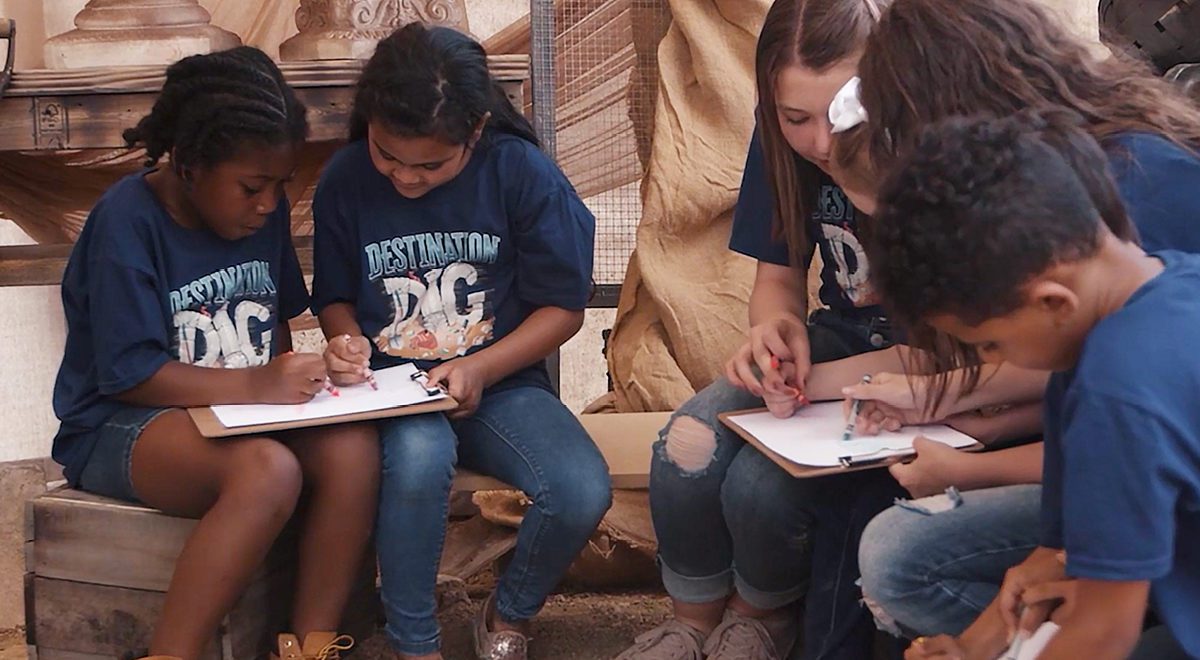By Kayla Stevens
The families in our ministries are wonderfully diverse, unique, and different, and we celebrate those differences. Yet, as we serve the families in our churches, we may still have some blind-spots in how we interact with the different types of families we serve.
I recently had the pleasure of chatting with my good friend, Sara Lansford, a talented editor, Kidmin leader, and foster mom about how church leaders can be encouraged to serve both the non-traditional and traditional families in our ministries. Here are a few insights from that conversation.
What is something you want leaders to know about non-traditional families?
I really would love for church leaders to advocate that non-traditional families can be healthy families, too. Our culture often talks about things in terms of health and brokenness, and oftentimes families that are not traditional are seen as unhealthy because they don’t fit the traditional mold or model. But, what is true according to the gospel is that all families are broken. We are all broken by our sin, and that sin not only affects us and our relationship with God, but also our relationship with others, including our families. Whether our kids belong to a family through foster care, adoption, or biology, all of our families are broken and in need of Jesus. As such, we don’t have healthy families because they are traditional and unhealthy families that are not. We have families of all shapes and sizes that need the redemption and restoration of Jesus.
What is a misconception you see in the church at large in relation to kids from non-traditional families?
I think one of the misconceptions we often operate from is that children from non-traditional families are “bad kids” or will require more energy and patience than kids from traditional families. We don’t always say this aloud, but we may demonstrate this in how we approach behavior issues at church or the conversations we choose to have with that child’s adult. One of the best pieces of advice I heard about children and behavior is that every behavior is a sign of a need. If there is a behavior that is being expressed, there is usually a deeper need behind the behavior that needs to be brought to the surface. No child is the same and no experience is the same, but kids often know when an adult or authority figure sees them differently than the boys and girls around them. As leaders and volunteers, we need to make sure we are viewing each child in our care with equal dignity, respect, love, and expectations.
What can leaders and volunteers do to encourage and support non-traditional families in the local church?
When it comes to supporting and caring for non-traditional families in the local church, there are three things that come to mind that were so helpful for me. First, language matters. Our volunteers have changed terminology in identifying the adults in kids’ lives as “your grown-up” rather than mom and dad. It seems like a nuanced change, but for the families in your ministries whose primary caregiver is not a mom or dad, this shift is seismic. It recognizes and respects the caregivers and helps children feel included in understanding they have grown-ups in their lives like the other kids in their class.
Second, options are important. When certain holidays come about that celebrate family members, be mindful of the kids in your ministry and be ready to provide several options that everyone in the class can choose from. If your class makes a Mother’s Day card for moms or grandmothers, also consider options where kids can participate, such as making a card for a teacher or friend. Create opportunities for kids to feel included rather than singled-out because their family doesn’t include a mom or grandmother.
Lastly, I think it has been so encouraging for me as a mom to be part of a church that fosters community and communication. Having opportunities for kids of single parents to be taken somewhere special to shop for Christmas gifts for their grown-up or dropping off a meal kit basket on Valentine’s Day are small gestures that spoke volumes to me.
Families of all shapes and sizes want to be seen and want to belong. When we take the time to let people know we see them and love them, we open the doors even wider for them to grow deeper in biblical community as the family of God.
Kayla Stevens is a Content Editor for Lifeway Kids. She is a graduate of Southeastern Baptist Theological Seminary and William Carey University. Kayla lives in Nashville, Tennessee and has served in Kids ministry for over 10 years.


 3 EASY WAYS TO FOLLOW UP AFTER VBS
3 EASY WAYS TO FOLLOW UP AFTER VBS